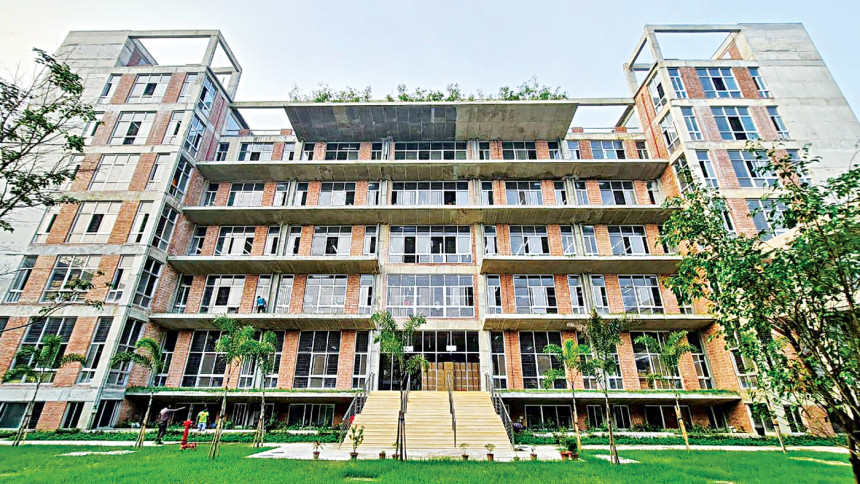

Team Group, a leading garment exporter, has targeted to export goods worth $1 billion by 2026, when Bangladesh is scheduled to officially make the United Nations status graduation from a least developed to a developing country.
To put this into perspective, Bangladesh earned $4.85 billion from merchandise exports in January with apparel shipments accounting for about 85 per cent of it.
Apart from manufacturing textile and clothing, the conglomerate has a garment buying house, a pharmaceutical company and real estate development firm.
Among the ventures, the garment buying house’s exports last year stood at $270 million, said Abdullah Hil Rakib, managing director of Team Group, during a conversation at his factory on Saturday.
Exporting pharmaceuticals over the last couple of years on initially catering to local demand, the group sold medicine worth nearly $15 million locally and $600,000 abroad last year, he said.
Last year, the group’s 4A Yarn Dyeing exported garment items worth $36 million and at the end of the current year, Rakib expects to attain $70 million.
“I am very much hopeful that both the pharmaceuticals and buying house would be very important components in achieving the $1 billion,” he said.
The group has already been preparing to address the graduation challenges, such as erosion of trade preferences, so that its exports maintain robust growth.
Mainly producing outerwear for customers in Europe and the US, 4A Yarn Dyeing has made strong improvements in compliance to laws and diversified its production base, taking on high-end value added garment items so that buyers pay better prices.
As a result, almost all important global clothing retailers and brands have been placing work orders in bulk quantity with 4A Yarn Dyeing.
Last month it received the United States Green Building Council’s Leadership in Energy and Environmental Design certification of platinum standard.
Nearly all of the factory’s 7,000 workersstay near the production facility at Kaichabari, Banchabarri, Baipail in Savar under Dhaka district.
So coming to work does not require transportation on vehicles, which helped reduced carbon emissions, said Rakib.
The factory is able to harvest 86.3 per cent of the rain that falls on it premises while solar panels, LED lights and architectural changes making better use of sunlight saves up on around 50 per cent in energy use.
With the higher inflow of work orders from the international retailers and brands, Team Group is going for a massive expansion of capacity, said Rakib.
Currently, the factory’s production runs on a five lakh square feet space, creating mainly outerwear for brands like Guess, Next, Tommy Hilfiger, Calvin Klein, s. Oliver and many more European and American retailers and brands.
By 2025, the group plans opening another factory of the same size just near the current one.
The factory being planned will mainly produce manmade fibres so that the group need not require making imports from China, Indian and other sources.
Rakib said the next business of Bangladesh would be of manmade fibre and the group would mainly produce the garment items out of manmade fibre.
However, he has no plan for increasing the number of workers too much as he has already started installing updated machineries for higher productivity.
In fact, a large number of workers is not required for production of high-end value added garment items, especially outerwear. Instead sophisticated machineries are needed.
In some production sections, Rakib has already installed the automated machines for higher and finer production of goods.
The group now employs 18,000 workers. He has also been regularly providing training to workers to meet the crisis of skilled workers so that they can handle the modern machineries.
Rakib has been transforming the production facility mainly targeting the LDC graduation as the country will not be able to enjoy the GSP benefit after the graduation.
“I have been gearing up my production facility in such a way so that the retailers and brands cannot ask any question regarding the compliances and production facilities, for bringing efficiency and for getting better prices in the time of fierce competition after the graduation,” Rakib said.









